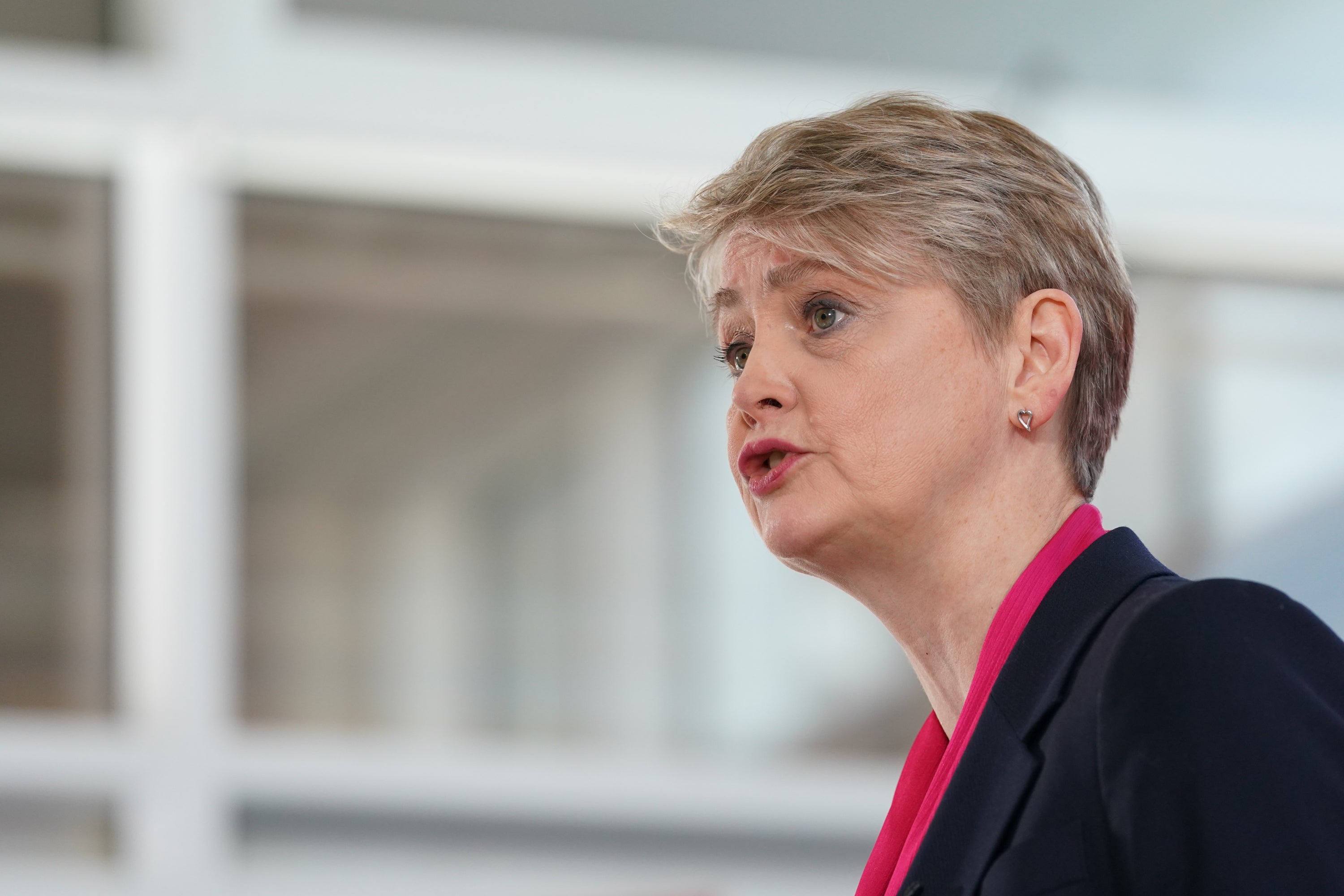Labour has set its agenda to tackle the small boats crisis – now the hard work begins
Editorial: Too many lives have already been lost – and too many people continue to put themselves in danger. The sooner a Border Security commander is appointed with wide powers to coordinate an effort to tackle this deadly trade, the better

The home secretary, Yvette Cooper, declares that there is a “moral imperative” to end the deadly trade in people crossing the English Channel in small boats. She is right to do so.
Too many desperate people are being exploited and placing their lives at risk; too many criminals are growing rich on the back of human misery – and there is no sign that any of the approaches tried thus far will ameliorate the situation.
Only this week, 12 people – including six children and a pregnant woman – died while making the perilous crossing. The numbers involved so far this year are up on the same period in 2023 – some 21,977 have arrived since the beginning of January. The numbers are slightly up on the same period last year. Although the flow will slow down over autumn and winter, effective action will need to be taken now to prevent the trafficking from resuming next year.
Immigration has rarely been a subject to attract an easy consensus but there is little argument that the smuggling of asylum seekers in this manner is in no one’s best interests – and that every possible policy option has to be explored. The work to close down as much of the trade as possible will be relentless.
That is why the prime minister and Ms Cooper convened their migration operational summit, involving every relevant government department and agency – including the national crime agency.
A fresh start has been made and the agenda has been set. The full resources of the state shall be directed at this challenge – and the sooner a Border Security commander is appointed with wide powers to coordinate the effort, the better.
It will be the most high-profile, sensitive, demanding job in the whole of the machinery of government. Some have questioned why the recruitment process seems to be taking so long but if it takes time to find the highest calibre of candidate, they will be worth waiting for.
Treating the problem primarily as a criminal justice matter, rather than an administrative or political one, is certainly the best place to start. The Rwanda plan was, at best, a typically cynical, tokenistic gesture designed by Boris Johnson to give the impression that something was being done, with little care given as to its value for money or effect.
It was abandoned, as promised, on day one of the Starmer administration, with the money and staffing redirected to going after the organised crime gangs – and to processing the intolerably large asylum backlog bequeathed by the previous government. That, too, is an important and overdue shift in priorities.
The Sunak administration attempted to make the seeking of asylum “illegal” under domestic law (though it remains lawful under the European Convention on Human Rights). Yet, in practice, it was no deterrent at all – and merely meant that when people did arrive in the UK, they couldn’t be processed.
Far too many were left in limbo in unsuitable accommodation with no hope of being granted refugee status, but also little chance of being repatriated back to the unsafe counties whence they came.
The Illegal Immigration Act 2023 was a textbook example of a political stunt designed to make Conservative ministers at their party conferences look tough but which (in reality) made matters far worse. It was the same story with the Rwanda plan and the absurd Bibby Stockholm experiment, which has now also been terminated.
So now that “stop the boats” has been replaced by “smash the boats”, will this three-word slogan fare any better? Common sense suggests, as with any attempt to reduce crime, it is not likely to be 100 per cent effective.
Yet it does not need to be. It is surely likely, especially with the involvement of the security services and with adequate funding, that some gangs will be smashed and others disrupted. But, as Ms Cooper and her colleagues stress, international cooperation with our European neighbours – and further afield, such as Libya and Turkey – will also prove essential.
What is still missing from Ms Cooper’s plans is the “safe and secure” routes for genuine refugees that she used to talk about but which mysteriously disappeared from her speeches as the general election drew near. There will always be refugees, for as long as there is conflict and persecution in the world.
The civil war now raging in Sudan, for example, has already displaced 150,000 people; and Europe and North America will always be desirable, safe destinations for people forced to make a new start in life. It is not just the gangs, in other words, who are responsible for what has been happening in the English Channel.
There is a demand for the smugglers’ services. Reducing that demand is also part of the solution – especially strengthening support in refugees’ home regions and trying to reduce conflict and slow climate change, which can also drive people from their homes. Safe and secure processes for applying for asylum from abroad and a safe path to the UK would also help reduce irregular arrivals.
Treating refugees with the compassion, dignity and respect they deserve – and are entitled to under international conventions – is also a “moral imperative”.






Join our commenting forum
Join thought-provoking conversations, follow other Independent readers and see their replies
Comments